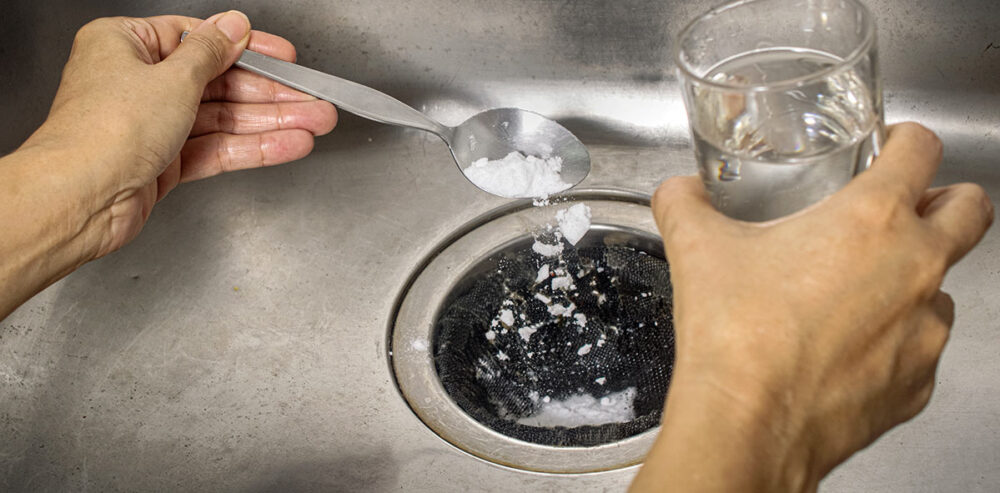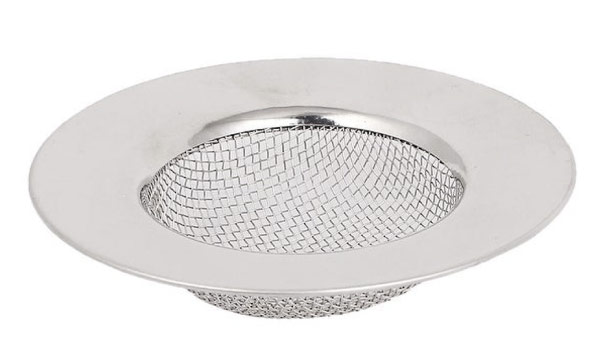Prevent Drain Clogs
Drains and plumbing lines can clog for a number of reasons including; food debris, residue build up, hair, tree root invasion, pipe displacement and more.
Used regularly, these tips can help your prevent drain issues. If you already have a slow drain or clogged pipe, they could help you clear the line completely.
Avoid Putting These Items in Your Drains
First, prevention is key. If you can avoid putting substances known to clog pipes in your drains, you’re less likely to have an issue. Avoid:
- Foods that cause clogs – A garbage disposal is capable of pulverising most food items, however, there are certain foods you should avoid putting down your drain and disposal because they can eventually clog your pipes. Flour, coffee grounds, egg shells, fruit and vegetable peels, husks from corn, and large amounts of starchy foods like potatoes should be disposed of in the trash cans. While your disposal will have no trouble with these foods, they can get lodged in pipes, or create build up.
- Grease and Oil – Cooking grease and fats can collect inside your pipes over time. For long-term plumbing health, put these substances in the trash.
- Hair – One of the biggest problems for drains. Over time hair can build up and create complet blockages. A drain filter is a good way to reduce the amount of hair in your pipes. Be sure to clean showers regularly, and avoid brushing your hair over the sink.
- Dirt – Small amounts of dirt from washing your hands is probably not an issue, but the less dirt you send through your plumbing the better. Over time dirt can build up and lead to clogs. Large amounts of dirt and/or mud at once can instantly create a problem.
- Trash – Cigarette butts, gum, bits of paper, tiny pieces of plastic, etc. can easily clump together and form hard-to-remove clogs. Don’t put anything in your drain that shouldn’t be there.

Baking Soda and Vinegar Can Reduce Build Up
This is very common home remedy you can try to prevent clogs and slow drains. Pour a pot of boiling water in your drain, then add 1 cup of baking soda and 1 cup of vinegar. Let this mixture sit for about 5 minutes, then run the hot water for a minute. Doing this every few weeks can help reduce minor blockages. It may even clear minor clogs. You can do the same thing with half a cup of baking soda with half a cup of salt.
Many people simply pour a pan or two of boiling water down their drains to prevent clogs, which can also be helpful, however, the chemical reaction that happens with baking soda and salt, can remove tougher obstructions.
Install a Drain Filter
Drain filters are mesh screens that prevent debris and hair from getting into your pipes. These filters are sold at most hardware stores. They fit on most sinks and showers, and are easy to install and clean. A drain filter is highly suggested if you have people in your home with long hair.

Clean Sinks Regularly
In addition to flushing drains, another easy way to prevent clogged drains is to clean the gunk and debris that collects around your sink stoppers, faucets, and drain covers. Between your bathtub, shower, and sinks, this is a lot of debris that can build up in pipes.
The same goes for garbage disposals. Check your owner’s manual for cleaning tips, but most models you can clean by grinding up ice and half a cup of salt. This will reduce particles stuck in the grinding chamber. Rinse thoroughly afterward.
How to Clear a Clog
If prevention hasn’t helped, there are a few things you can try to clear a drain clog. For a blockage in a sink or tub drain, you can often use a plunger to clear it. You’ll probably want to use a different plunger than you use for the toilet!
Drano and other store-bought chemicals are effective, but not recommend for some situations. Read the instructions and only use these products only as intended.
If you have repeated clogs after using commercial cleaners, you may need to have the drain cleaned by a professional. Because slow drains and clogs can happen anywhere in your plumbing system, they can sometimes be difficult to diagnose. Professional plumbers use long snakes and cameras that fit into pipes to find and clear clogs.
For drain service in the Wichita area, give us a call:
We do our best to provide current and accurate information, but this content could contain errors or information that is not correct for your situation or equipment. Resources found on our website are provided as general information. Reddi Industries does not assume any liability resulting from the provided information. If you attempt to repair or modify plumbing, electrical, or other equipment in your home or business, always consult your equipment’s operating manual first, and only do so if you are qualified.
